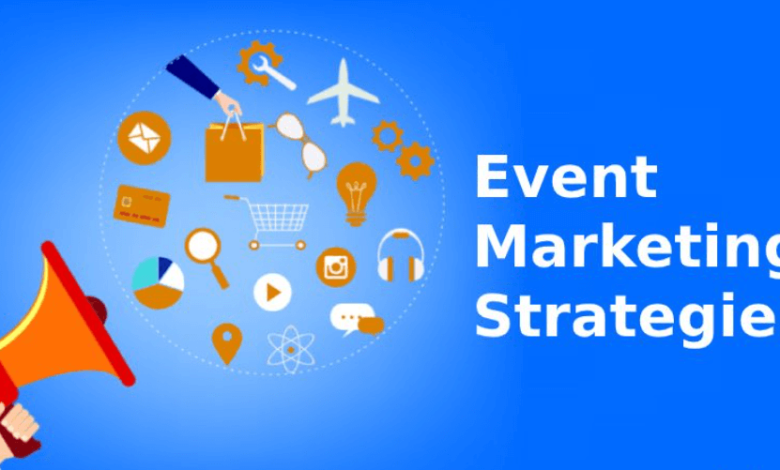10 Ways to Measuring Event Marketing Success

Measuring the success of your event marketing efforts is crucial to understanding the impact of your strategies and making data-driven decisions for future events. By employing effective measurement techniques, you can assess the return on investment (ROI), identify areas of improvement, and optimize your event marketing campaigns. In this article, we will explore ten key ways to measure event marketing success, enabling you to track the right metrics and gauge the effectiveness of your efforts.
How to measure event marketing success in ten ways:
Define Clear Objectives
Before diving into metrics and measurements, it is essential to establish clear objectives for your event marketing campaign. Define specific goals, such as increasing brand awareness, generating leads, or driving sales, and align your metrics accordingly. By setting clear objectives, you provide a framework for measuring success and focus on the metrics that matter most to your event’s purpose.
Set clear objectives for your event marketing, align metrics accordingly, and use a PDF editor Mac to create visually appealing reports showcasing correlations between goals and results.
Registration and Attendance Metrics
Measuring registration and attendance metrics allows you to evaluate the reach and interest generated by your event. Track metrics such as the number of registrations, conversion rates, attendance rate, and registration sources. Analyze these metrics to identify which promotional channels and strategies are most effective and optimize your marketing efforts to increase registrations and attendance.
Engagement Metrics
Assessing the level of engagement your attendees have with your event provides valuable insights into its success. Track metrics such as session attendance, session duration, booth visits, and social media interactions. These metrics indicate attendee interest and involvement, enabling you to identify popular sessions or activities and tailor future events to maximize engagement.
After gathering and analyzing the engagement metrics, utilize a PDF writer to create comprehensive reports that highlight attendee interactions and preferences, aiding in data-driven decision-making and enhancing the overall success of your future events.
Lead Generation and Conversion Metrics
For many event marketers, lead generation and conversion are key objectives. Measure metrics such as the number of qualified leads captured, lead-to-customer conversion rate, and average deal size. By tracking these metrics, you can assess the quality of leads generated through your event and evaluate its impact on your sales pipeline. Adjust your lead nurturing strategies based on the data to improve conversion rates and maximize ROI.
Post-Event Surveys and Feedback
Collecting feedback from attendees through post-event surveys provide valuable insights into their experience and satisfaction. Ask specific questions about event content, organization, networking opportunities, and overall satisfaction. Use qualitative and quantitative data from surveys to gauge attendee sentiment and identify areas for improvement in future events. By incorporating SEO writing techniques in the survey collection process, event organizers can effectively analyze qualitative and quantitative data, ensuring better visibility and accessibility of the survey
Social Media Reach and Engagement
Social media platforms are powerful tools for amplifying event reach and fostering engagement. Measure metrics such as event-related hashtags, mentions, shares, and follower growth. Analyze sentiment analysis to understand the overall perception and sentiment surrounding your event on social media. Use these metrics to evaluate online visibility, audience engagement, and the effectiveness of your social media marketing strategies.
Return on Investment (ROI) Metrics
To assess the financial impact of your event marketing efforts, measure ROI metrics. Calculate the total revenue generated from the event, factoring in expenses such as venue costs, marketing expenses, and staff wages. Analyze ROI metrics to determine the profitability of your event and identify areas where costs can be reduced or revenue can be increased in future events.
Long-Term Impact and Customer Retention
Beyond immediate event metrics, consider the long-term impact of your event marketing efforts. Measure metrics such as customer retention rate, repeat attendance, and post-event engagement. Assess whether your event successfully nurtured long-term relationships with attendees and led to ongoing customer loyalty and advocacy.
Lastly, for businesses that offer to buy open edition prints, monitor the post-event sales and engagement data to gauge the effectiveness of your event in driving interest and sales in your art collections.
Brand Perception and Awareness Metrics
Measuring brand perception and awareness metrics allows you to evaluate the impact of your event on your brand’s reputation and visibility. Track metrics such as brand sentiment, brand mentions in media coverage, and brand recall among attendees. Assess the extent to which your event positively influences brand perception, increases brand awareness, and enhances brand visibility in your target market. Use these metrics to gauge the effectiveness of your event marketing in building a strong brand presence.
Benchmarking Against Previous Events and Competitors
To gain a deeper understanding of your event marketing success, it’s important to benchmark your current event against previous events you’ve hosted. Compare metrics such as registration numbers, attendance rates, engagement levels, lead generation, and ROI to identify trends and improvements over time. Additionally, benchmarking against competitors’ events can provide valuable insights into industry standards and help you gauge the effectiveness of your strategies relative to others in your field. By analyzing these benchmarks, you can identify areas where you outperform the competition and areas where you can further optimize your event marketing efforts.
Conclusion
Measuring event marketing success requires a comprehensive approach that encompasses various metrics and KPIs. By defining clear objectives, tracking registration and attendance, assessing engagement, evaluating lead generation and conversion, collecting post-event feedback, measuring social media reach, calculating ROI, and analyzing long-term impact, you can gain valuable insights into the effectiveness of your event marketing campaigns. Utilize these measurements to optimize your strategies, improve future events, and achieve greater success in your event marketing endeavors.





